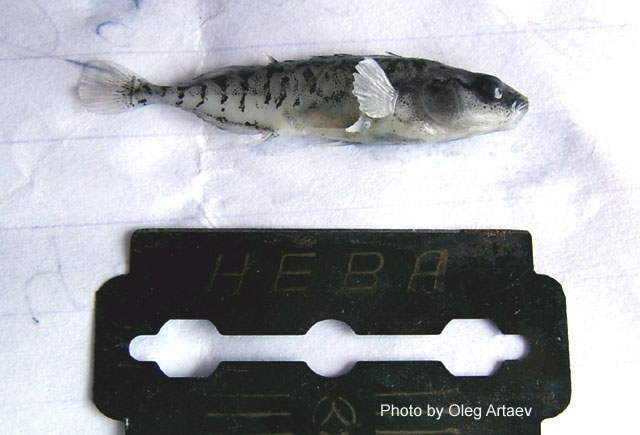| Gasterosteidae (Sticklebacks and tubesnouts) |
| 6 cm SL (male/unsexed) |
|
benthopelagic; freshwater; brackish; marine |
| Europe and Asia: Lower courses of rivers draining to northern shore of Black, Caspian and Aral Sea basins, Danube drainage as far upstream as Belgrade; isolated populations in Axios and Aliakmon drainages (Greece); upper Tobol system (Ob drainage), Lake Issyk-kul basin (Kyrgyzstan) and Sarysu drainage (central Kazakhstan). |
|
Dorsal spines (total): 8-11. Distinguished uniquely from its congeners in Europe by having large lateral scutes. Differs further from other members of the genus by the combination of the following characters: side of caudal peduncle without keel; and dorsal fin with 8-11 spines (Ref. 59043). |
| Occurs in fresh, brackish and marine waters (Ref. 58342). Inhabits swamps and slow-flowing streams with dense vegetation. Feeds on benthic invertebrates. Territorial during spawning season. Males construct a nest and guard the nest until the young swim away a few weeks later. Attain first sexual maturity at 1 year of age (Ref. 59043). |
|
Least Concern (LC); Date assessed: 01 January 2008 Ref. (130435)
|
| harmless |
|
Occurs in brackish portions of the Black Sea, in rivers falling into the Black Sea, lower reaches of the Dniester, delta of the Don, Sea of Azov, Caspian Sea and the mouths of the rivers falling into it, and the Volga (Ref. 2058). This has been translocated to areas within the country, rapidly expanded its range and is now widely established (Ref. 45022). Also Ref. 26334. EurRus |
Source and more info: www.fishbase.org. For personal, classroom, and other internal use only. Not for publication.

